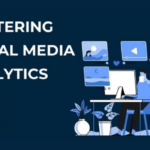Introduction
Overview of digital marketing: Introduce the concept of digital marketing and its importance for businesses of all sizes.
Challenges of a limited budget: Briefly discuss the common challenges small businesses and startups face when trying to market their products or services with limited resources.
Purpose of the post: Explain that the blog post will provide practical tips and tricks for executing effective digital marketing strategies without breaking the bank.
Understanding Your Target Audience
Importance of knowing your audience: Explain why understanding your target audience is crucial for any marketing effort.
Creating buyer personas: Provide a step-by-step guide on how to create detailed buyer personas based on demographics, interests, and behaviors.
Utilizing free tools for audience insights: Suggest free tools like Google Analytics, Facebook Insights, and surveys to gather data about your audience.
Leveraging Social Media
Choosing the right platforms: Discuss how to select the most effective social media platforms based on where your audience spends their time.
Creating engaging content: Offer tips on creating content that resonates with your audience, including user-generated content and behind-the-scenes posts.
Utilizing free social media tools: Highlight free tools like Hootsuite and Buffer for scheduling and managing social media posts.
Content Marketing on a Budget
Starting a blog: Explain the benefits of blogging for SEO and audience engagement, and provide tips for creating valuable blog content.
Repurposing content: Discuss strategies for repurposing existing content into different formats, such as turning blog posts into videos or infographics.
Guest posting: Suggest writing guest posts for other blogs in your industry to increase visibility and reach a wider audience.
Email Marketing
Building an email list: Provide tips on growing an email list organically, such as using sign-up forms and offering lead magnets.
Creating effective email campaigns: Discuss how to craft compelling email content and subject lines that encourage opens and clicks.
Using free email marketing tools: Recommend free or low-cost email marketing tools like Mailchimp and Sensible.
SEO and Organic Traffic
Keyword research: Explain the importance of keyword research and suggest free tools like Google Keyword Planner and Uber.
On-page SEO: Provide tips on optimizing website content for search engines, including title tags, meta descriptions, and internal linking.
Local SEO: Discuss the benefits of local SEO for small businesses and provide tips on optimizing for local search, such as creating a Google My Business profile.
Utilizing Free and Low-Cost Tools
Design tools: Recommend free design tools like Canva for creating graphics and visual content.
Analytics tools: Highlight the importance of tracking and measuring performance using free tools like Google Analytics and Google Search Console.
Project management tools: Suggest tools like Trello or Asana to help plan and manage marketing activities efficiently.
Collaborations and Partnerships
Influencer marketing on a budget: Discuss how to find and collaborate with micro-influencers who align with your brand and are more affordable.
Cross-promotions: Explain how to partner with complementary businesses for mutual promotion and increased reach.
Community involvement: Suggest getting involved in local events and online communities to build brand awareness and credibility.
Measuring Success and Adjusting Strategies
Setting clear goals: Explain the importance of setting measurable marketing goals and KPIs.
Tracking performance: Provide tips on how to regularly track and analyze the performance of marketing efforts.
Adjusting strategies: Discuss the need to be flexible and willing to adjust strategies based on what the data shows.
Conclusion
Recap of tips and tricks: Summarize the key points discussed in the post.
Encouragement to take action: Motivate readers to implement the strategies shared and start their digital marketing efforts.
Final thoughts: Reinforce the idea that effective digital marketing is possible even on a limited budget with creativity and strategic planning.















